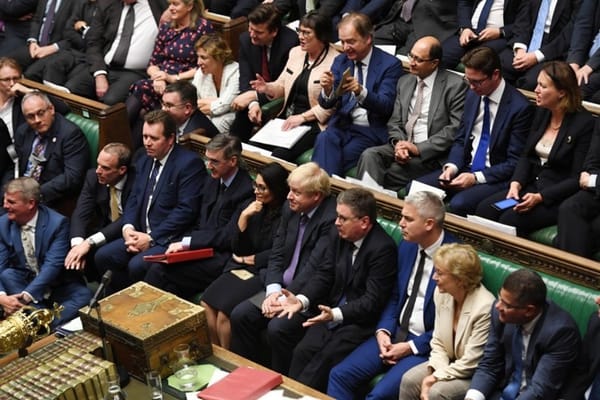The Turkish Invasion of Syria
The American withdrawal provides Turkey with a chance too good to miss

Turkey has always occupied a strategically significant place in history. As the bastion for the Byzantine Empire, as the base for Ottoman dominance of the Middle East and as the gateway to the Crimea, Turkey has always been a valuable prize. More recently, Turkey’s membership of NATO was a diplomatic coup against the Soviet Union, allowing for the placement of short-range nuclear missiles at the doorstep of the Red Empire. With the advent of the Syrian Civil War, Turkey has become an ever more important regional power player.
The Syrian Civil War started in 2011. It has evolved over time into one of the most brutal modern conflicts, killing and disabling thousands and creating millions of both externally and internally displaced refugees. The war is multifaceted, with forces loyal to Bashar Al Assad, Salafist Islamist groups, mixed Arab-Kurdish fighters and Turkish backed militias, fighting to secure conflicting political goals. Bashar Al Assad’s forces have received support from Russian warplanes and Iranian militias, the Saudis sent funds and arms to certain Islamist groups, and the US, until recently, supported the Arab-Kurdish branches of the Syrian Democratic Forces (SDF).
Two weeks ago, a conflict that had seemed to reduce in magnitude flared up again, when the US decided to remove its backing for the Syrian Democratic Forces. Subsequently, Turkey decided to invade Northern Syria and set up an exclusion zone.
Turkey has taken this decision for a variety of reasons. The Syrian Democratic Forces is the main occupant of the contested region. The SDF’s main component is the People’s Protection Units (YPG, a Kurdish abbreviation), Kurdish militias set up to provide protection and security in the region of Syria following its abandonment by Syrian government forces. They have proved to be the West’s key ally in the fight against Islamic State, acting coherently with Western special forces to degrade and ultimately destroy Islamic State. However, the Kurdish identity of the SDF is problematic for Turkey, as they accuse the YPG of having links to terrorist Kurdish organisations. Kurds are a large minority in South Eastern Turkey. Terrorist campaigns run against the Turkish state since the 1970s in the name of an independent Kurdish state have killed many Turkish civilians. Naturally, the presence of a heavily armed, competent Kurdish force has given Turkish security forces much to worry about over the past several years.
However, there is an additional factor that must be considered - the increasing aggressive nationalism present in Turkey over the past 20 years. Politics in Turkey has had one man at its center for the last sixteen years. President Recep Tayyip Erdogan was Prime Minister from 2003- 2014 and President from 2014. Over that time Erdogan has survived a violent coup attempt against himself and his government, as well as bringing into force laws that establish Presidential primacy. He has also stoked controversy both within and without Turkey with corruption scandals and attacks on women and minorities. The nationalist, violent opposition to the creation of an independent Kurdish state, or even a region of increased Kurdish autonomy is entirely within his prerogative as a regional strongman.
These factors have been the prime motivations behind the invasion of Syria. The only reason they had not yet been carried out was the presence of US forces in the area. However, Donald Trump, in yet another piece of stunningly blind diplomacy took the decision to withdraw these troops and give the Turkish operation the go-ahead.
The Turkish plan is to assault SDF positions in concert with Turkish-backed militia allies and establish an exclusion zone deep inside Syria’s sovereign territory. Turkey then plans to resettle some of the millions of refugees that it currently shelters in the occupied territories. Over the few days that the invasion was planned before the current ceasefire was started, accusations of human rights abuses, as well as damming evidence that war crimes have been committed has come to the fore. Banned substances such as white phosphorous have been observed to have been used by militias loyal to Turkey in direct contravention of the rules of war. Additionally, the assault has created thousands more refugees, as families flee the assault. Fears of Turkish ethnic cleansing of Kurdish citizens are widespread. The Turks (and, to be fair, the Kurds) are definitely not beyond a little genocide, and then denying it for the rest of time.
The immediate impact for the West and the people living in the Syrian conflict can only be said to be negative. As well as losing the goodwill and support of a useful local force, the West has also shown itself to be an unreliable ally, and it is unlikely to find willing partners in the future. Additionally, the West has once more betrayed the Kurdish people to their fate, as in the aftermath of the First Gulf War and the 1991 Kurdish uprising against Saddam Hussein.
Turkey has been proved to be a poor ally for the West. Its cooperation on Russia in purchasing the S400 missile system, its threats against the EU to release refugees should the EU condemn its Syrian invasion and Erdogan’s confessed ambitions for nuclear weapons raise significant questions for the other members of NATO as to whether Turkey is a suitable member.








